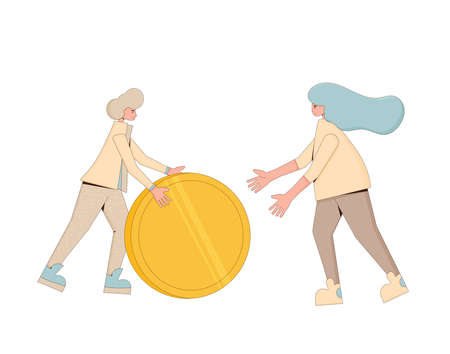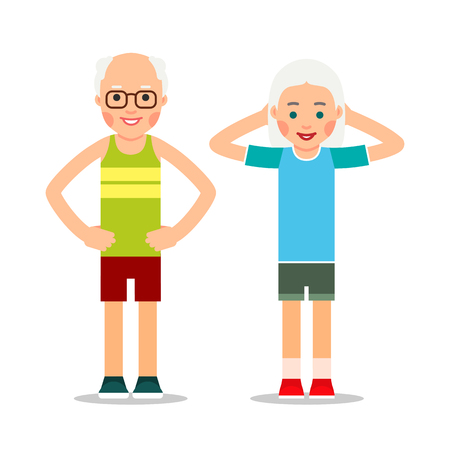Understanding Dementia in Indian Context
Dementia is a progressive neurological condition that affects memory, thinking, and daily functioning, particularly among the elderly. In India, dementia remains widely misunderstood due to limited awareness and deep-rooted cultural beliefs. Many families often attribute symptoms of dementia—such as forgetfulness or confusion—to normal ageing or even supernatural causes, rather than recognising them as medical concerns. This misconception can delay diagnosis and appropriate care.
In the Indian context, the stigma attached to mental health issues further complicates matters. Elders experiencing cognitive decline may face neglect or be kept away from social activities, leading to isolation and emotional distress. The joint family system, once a strong support network for ageing members, is gradually giving way to nuclear families, leaving many seniors without consistent care or companionship.
Moreover, societal attitudes towards mental health are still evolving in India. Seeking help for psychological conditions is often seen as taboo, resulting in underreporting and lack of treatment for dementia. The challenges for Indian elders are thus compounded by inadequate healthcare infrastructure, low literacy rates about mental health, and a general lack of resources dedicated to geriatric care. Addressing these cultural and systemic barriers is crucial for improving the quality of life for seniors with dementia in India.
2. Physical Effects of Dementia among Indian Elderly
Dementia not only impacts memory and cognition, but also brings significant physical challenges, especially among elderly people in India. As dementia progresses, the body’s functional abilities decline, often leading to a reduced capacity for daily activities. Early signs can be subtle: difficulty with balance, slower movement, or changes in coordination. Over time, these symptoms may worsen, resulting in a higher risk of falls and injuries, which is particularly concerning in Indian homes where joint families often have shared living spaces with uneven floors or stairs.
Common Physical Symptoms Observed
| Physical Symptom | Description | Impact on Indian Elderly |
|---|---|---|
| Muscle Weakness | Reduced muscle strength affects walking and lifting objects. | Elderly may need help carrying out household chores or attending religious gatherings. |
| Poor Balance & Coordination | Increased risk of slips and falls due to unsteady gait. | Greater reliance on family members or caregivers for mobility; risk of injuries increases during festivals or crowded events. |
| Difficulty Swallowing (Dysphagia) | Trouble swallowing food or water, leading to nutritional deficiencies. | Special meal preparations needed; traditional Indian foods may need modification for easier consumption. |
| Incontinence | Loss of bladder/bowel control. | Cultural stigma may lead to embarrassment; families might face challenges maintaining hygiene. |
Influence of Indian Caregiving Practices
In India, caregiving is mostly managed by family members within the home environment. This cultural norm shapes the way physical symptoms are handled. Joint family systems allow for sharing responsibilities but also require adjustments to living spaces—such as installing handrails or creating safe walking paths—to prevent accidents. Home remedies and traditional massage therapies are sometimes used to relieve pain or stiffness in limbs, though it is crucial that families seek medical advice before using such methods.
Strategies to Manage Physical Decline
- Encouraging regular gentle exercises like yoga or walking in community parks under supervision
- Providing adaptive utensils for eating and drinking familiar foods safely
- Ensuring easy access to washrooms and minimizing obstacles at home
Conclusion
The physical effects of dementia among Indian elderly can be profound, impacting independence and quality of life. By understanding these symptoms and adapting caregiving practices accordingly, families can support their loved ones through this challenging journey while respecting cultural traditions and values.

3. Mental Health Impact and Emotional Wellbeing
Dementia significantly influences the mental health and emotional wellbeing of elderly Indians. As cognitive functions such as memory, reasoning, and decision-making gradually decline, seniors may experience confusion, frustration, and anxiety. These cognitive changes often result in a loss of independence, leading to feelings of helplessness or even depression.
Cognitive Decline in Indian Elders
In India, where family ties and respect for elders are deeply rooted in culture, cognitive impairment can be particularly distressing. Elderly individuals may feel embarrassed or ashamed due to forgetfulness or difficulty recognising loved ones. This often affects their confidence and social participation.
Emotional Stability and Psychological Conditions
The emotional impact of dementia goes beyond the individual. Families may struggle to understand behavioural changes, such as irritability or sudden mood swings. In rural areas, lack of awareness about dementia sometimes leads to stigma or social isolation for both the patient and their caregivers. Conditions like anxiety disorders, chronic stress, and depression are common among dementia patients as well as their families.
Local Coping Mechanisms
Indian communities have developed unique coping strategies to support affected elders. Joint family systems allow for shared caregiving responsibilities, reducing the burden on any single member. Religious practices such as prayer, meditation, and attending temple offer comfort and a sense of community. Traditional therapies like Ayurveda and yoga are also used to promote mental calmness and emotional balance.
Role of Community Support
Self-help groups and senior citizen clubs are increasingly popular in urban areas, providing safe spaces for elders to share their experiences and receive emotional support. NGOs like HelpAge India offer counselling services, awareness programmes, and helplines tailored to the needs of Indian seniors living with dementia.
Overall, addressing the mental health impact of dementia in India requires a blend of medical intervention, cultural sensitivity, community involvement, and emotional support systems.
4. Social Implications and Family Dynamics
Understanding Social Stigma in Dementia
In the Indian context, dementia is often misunderstood and surrounded by social stigma. Elders suffering from dementia may be labelled as “mad” or “bewitched,” leading to isolation and neglect. This misconception stems from lack of awareness and cultural beliefs that mental illness brings shame to the family. Such attitudes can prevent families from seeking medical help or community support, which further worsens the condition of the elderly.
Changing Family Roles in Modern India
The traditional Indian family structure is undergoing significant change due to urbanization, migration for work, and nuclearization of families. Earlier, joint families were common and elders with dementia could rely on collective care and attention. Today, however, many elderly people live alone or with limited support from their children who may reside in different cities or even countries. This shift in family dynamics increases the vulnerability of the elderly population, especially those experiencing cognitive decline.
Comparison of Joint and Nuclear Family Support
| Aspect | Joint Family | Nuclear Family |
|---|---|---|
| Care Availability | Multiple caregivers, shared responsibilities | Single caregiver, increased burden |
| Emotional Support | Sense of belonging, reduced loneliness | Risk of isolation for elders |
| Cultural Continuity | Easier to maintain rituals and traditions | Difficult to sustain traditions alone |
The Importance of Community Support Systems
The significance of community networks cannot be overstated in supporting elderly Indians with dementia. Religious organizations, local clubs, and neighbourhood groups often step in to fill gaps left by shrinking family structures. In rural areas, panchayats and self-help groups play a vital role in providing companionship and basic care. In urban settings, NGOs and day-care centres offer structured activities that stimulate cognitive function and provide respite for caregivers.
Key Social Support Resources in India:
- Senior citizen associations (e.g., All India Senior Citizens’ Confederation)
- Religious institutions organizing satsangs and prayer meetings for elders
- Community health workers trained in geriatric care
It is essential for policy makers, healthcare professionals, and society at large to recognize the unique challenges faced by Indian families dealing with dementia. Promoting education about dementia, breaking social taboos, and strengthening both familial and community-based support systems are crucial steps toward improving quality of life for Indias aging population.
5. Community Support and Healthcare Resources
In India, the challenge of dementia in old age is being tackled through a combination of community support systems, healthcare resources, and traditional caregiving approaches. The Indian government has implemented several schemes aimed at supporting the elderly, such as the National Programme for Health Care of the Elderly (NPHCE) and the Integrated Programme for Older Persons (IPOP). These schemes provide medical care, social support, and financial assistance to senior citizens living with dementia and other age-related issues.
Overview of Available Resources
Resources for Indian elders affected by dementia range from specialised memory clinics in urban hospitals to grassroots-level health camps in rural areas. Many government-run primary health centres (PHCs) offer basic screening and management for cognitive impairment. In metropolitan cities like Mumbai, Delhi, and Bengaluru, private organisations have established dedicated dementia care homes and day-care facilities. However, access remains a challenge in smaller towns and villages, where awareness is low and infrastructure may be lacking.
Government Schemes and Initiatives
The central and state governments have rolled out various pension schemes and subsidies to reduce the financial burden on families caring for elders with dementia. Initiatives such as Ayushman Bharat provide insurance cover for hospitalisation, while NPHCE focuses on preventive, curative, and rehabilitative services. Senior Citizen Welfare Funds are also available in some states to meet emergency needs.
The Role of NGOs and Community Health Workers
Non-governmental organisations (NGOs) play a crucial role in bridging gaps in awareness, diagnosis, and care. Groups like Alzheimer’s and Related Disorders Society of India (ARDSI) organise memory clinics, caregiver training workshops, helplines, and outreach programmes in local languages. Accredited Social Health Activists (ASHAs) often act as the first point of contact in rural communities by educating families about dementia symptoms and guiding them towards appropriate resources.
Traditional Care within Indian Society
Despite modern advancements, traditional family structures remain significant in Indian society. Joint families often take collective responsibility for elder care, rooted in cultural values of respect (shraddha) and duty (seva). Home-based care provided by family members is supported by ayurvedic practitioners or local healers in many regions. This blend of formal healthcare services and traditional care helps ensure that Indian elders with dementia receive holistic support tailored to their unique social context.
6. Promoting Active Ageing & Quality of Life
Embracing Indian Traditions for Holistic Well-being
In the Indian context, promoting active ageing is not just about physical activity but also involves mental stimulation and social participation, deeply rooted in our traditional values. For elderly individuals facing dementia, embracing a balanced lifestyle can significantly improve their quality of life and slow cognitive decline.
Lifestyle Modifications for the Indian Elderly
Simple lifestyle modifications can make a world of difference. Ensuring a consistent daily routine that includes adequate sleep, nutritious home-cooked meals like dal, sabzi, and fresh fruits, and hydration with herbal drinks such as tulsi or ginger tea can support overall health. Mindful practices such as meditation and yoga, both integral to Indian culture, have proven benefits in reducing anxiety and improving memory among seniors.
Exercise: Movement Inspired by Tradition
Physical activity tailored to individual abilities is key to maintaining mobility and independence. Traditional forms like Yoga Asanas, Pranayama (breathing exercises), and even gentle morning walks in the local park are excellent for joint flexibility and cardiovascular health. Community-based activities such as group bhajan singing sessions or classical dance movements adapted for seniors can also infuse energy and joy into daily routines.
Social Engagement: The Heartbeat of Indian Life
Indian society thrives on close-knit families and community connections. Encouraging elders to participate in religious festivals, temple visits, or satsang groups can help reduce isolation and boost emotional well-being. Intergenerational bonding—such as storytelling with grandchildren or teaching traditional recipes—keeps elderly minds engaged and strengthens family ties.
Cultural Engagements for Cognitive Stimulation
Activities like reciting shlokas, playing board games like carrom or chess, or learning new skills such as rangoli art offer meaningful cognitive engagement while preserving cultural heritage. Local community centres often organise workshops or laughter therapy sessions specifically designed for seniors, fostering a sense of belonging and purpose.
A Collective Effort: Family and Community Support
The journey towards active ageing requires collective effort from families and society at large. Respecting elders autonomy while providing them with opportunities for participation ensures dignity in their golden years. By blending ancient Indian wisdom with modern geriatric care approaches, we can create an environment where every elderly person living with dementia feels valued, supported, and empowered to lead a fulfilling life.
7. Breaking Myths and Enhancing Awareness
Addressing Common Misconceptions about Dementia in India
In India, there are many prevailing myths about dementia, often leading to stigma and misunderstanding. Some people believe memory loss is simply a natural part of ageing or that it is caused by spiritual or supernatural forces. Others may think dementia is untreatable or that those affected can no longer contribute to family life. Dispelling these myths is crucial for the wellbeing of elderly individuals with dementia, both in urban centres like Mumbai and rural communities across states such as Uttar Pradesh and Tamil Nadu.
Raising Awareness through Community Initiatives
Awareness campaigns led by NGOs, healthcare workers, and local leaders play a key role in educating families and communities about dementia. Workshops in local languages, street plays (nukkad natak), and information sessions at temples, mosques, and panchayat meetings help demystify the condition. Involving ASHA workers and Anganwadi staff helps bridge knowledge gaps in villages, ensuring even remote populations understand the symptoms and management of dementia.
Empowering Families with Knowledge
Families are the primary caregivers for most Indian elders. Providing accurate information about dementia—its causes, progression, and available treatments—empowers families to offer compassionate care rather than resorting to neglect or isolation. Simple guides in Hindi, Tamil, Bengali, and other regional languages can support families in both rural hamlets and bustling metros.
Tackling Social Stigma: A Shared Responsibility
Stigma around mental health conditions remains strong in many parts of India. By openly discussing dementia in public forums, schools, and media platforms like Doordarshan or All India Radio, we create an environment where elders feel respected and included. Celebrating positive stories of elderly individuals living well with dementia encourages acceptance throughout society.
Fostering Supportive Environments Across Urban & Rural India
Whether in a Kolkata apartment block or a village in Kerala, supportive environments make a significant difference for elders with dementia. Neighbours checking in regularly, community groups organising social activities tailored for seniors, and easy access to medical care all foster dignity and safety. By breaking myths and raising awareness together, Indian society can ensure every elder—regardless of location—lives with respect, support, and joy.

